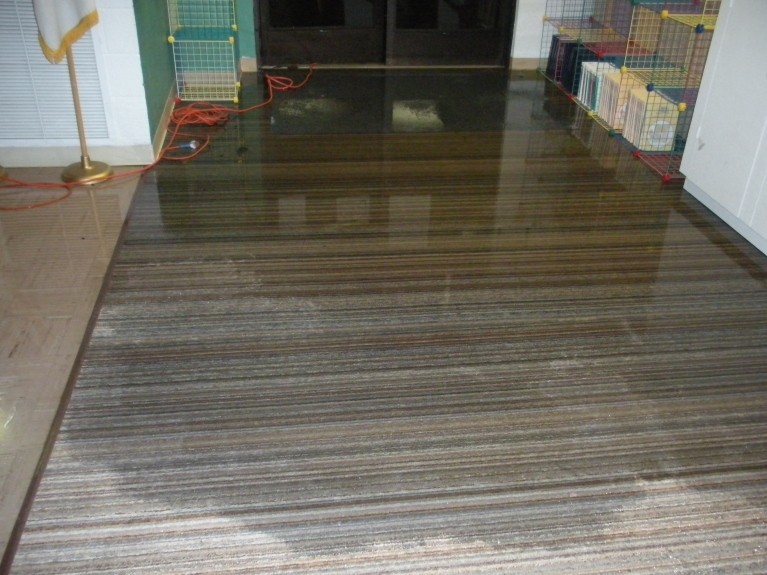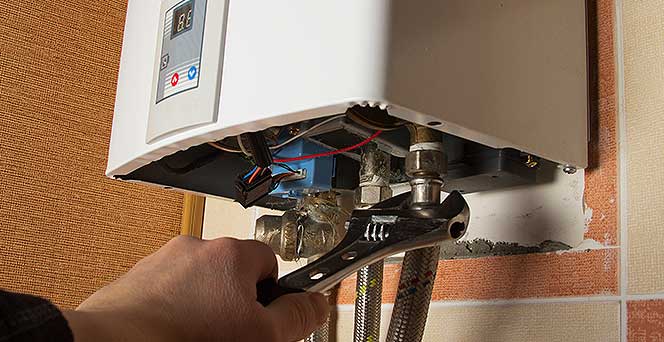Crucial Protocols for House Owners Managing Faulty Water Heaters
Crucial Protocols for House Owners Managing Faulty Water Heaters
Blog Article
What're your ideas regarding Maintaining & Draining a Water Heater?

Whether it lies in the basement or a different area, broken hot water heater can trigger stress. A conventional device holds 80 gallons, so an overnight leak will lead to a flooding. This causes major building damages with soaked wall surfaces and floorings. Having no hot water supply is likewise frustrating. If you are taking care of these concerns, bear in mind of the following:
Call the Plumber
After doing the initial 2 safety and security steps, you need to call your plumber to find today to take care of a fractured water heater. Nevertheless, keep in mind that your system will certainly not just collapse substantially overnight. There are typically indications that your aging water heater has sediment buildup in the interior. Keep in mind of the following:
Don't wait on significant flooding to call the plumber. By then, you will have to invest more to restore your building. Rather, as quickly as you find these signs, have a professional pertained to examine your hot water heater storage tank. Commonly, hot water heater have a life expectancy of concerning 8 to 12 years. With regular evaluation as well as maintenance, you can prolong its life.
Cut Off the Cold Water Supply
Cut off the tanks tap water supply from the source. This goes from your major water line right into the container. When your container is in good condition, the cold water stops filling out when the container is full. Considering that it is dripping, the water will proceed to move. Close the valve located on top of the heating unit. Rotate this clockwise to shut it off. You must transform off that major water supply line outside your residential property if you can not locate it or reach it.
Shut Down Power Source
Prior to calling the plumber, turned off a gas hot water heater by transforming the temperature dial. This is normally situated at the top of the thermostat. Switch off the circuit breaker if you have a model that runs on electrical power. This will prevent electrocution, specifically if there is a leakage as water is a conductor. Usually, the burner turns off when the water strikes a details temperature. However with a broken tank, it may malfunction. Sufficing off ensures you stay secure.
Tidy up Property
After calling the plumber, file damage by bearing in mind and also photos so you can declare your home owner's insurance. From there, start the immediate cleanup. Get any type of crucial personal belongings to prevent more soaking. Remove any standing water to avoid mold as well as mildew growth. Make use of that to drain pipes the water if you have a submersible water pump. Otherwise, the traditional pail method will also work. Attempt to mop out whatever, consisting of walls and walls. Maintain them running to maintain air circulating if you have an electrical fan and dehumidifier. This will certainly help discourage mold and mildew growth.
Remember, if you observe any issues with your water heating system, call the pros right away. You can not take this problem lightly due to the fact that a damaged thermostat can raise water temperature to a dangerously high degree, leading to accidental burns.
After doing the initial 2 safety steps, you should call your plumber to come right away to take care of a fractured water heating system. Instead, as soon as you identify these indications, have a specialist come to examine your water heater storage tank. Prior to calling the plumber, closed off a gas water heater by turning the temperature level dial. If you have a submersible water pump, make use of that to drain pipes the water. Keep in mind, if you see any kind of concerns with your water heating system, call the pros right away.
Is My Water Heater Broken?
The Water Heater is Old
No appliance will last forever. This includes a home’s water heater. During its lifespan, residents are going to face a situation where a new water heater installation will be necessary. The biggest problem with this is that most people are not sure when their water heater expires. Not knowing this can lead to serious risks if the unit begins to act up due to old age.
Most makes and models of water heaters will last between eight and 10 years. While 10 years is the age when water heater replacement is highly recommended, the need to replace the unit may occur before this time or after. If the unit doesn’t show any symptoms of a problem, it is a good idea to replace it at the 10-year mark (from the manufacture date).
Some of the symptoms that indicate a new unit is needed include rusting, leaks, noises, and a failure to heat up the water. Also, note that not all units have a 10-year life expectancy. The main exception to this rule is that a gas unit will last for six to eight years.
Rusty Heater Inlet Valve or Water
While steel is the strongest material on earth, it does have a weakness – rust. If corrosion occurs on a steel surface, it will begin to spread and eat through the steel in certain areas. On water tanks and pipes that are made of steel, rust is a warning sign of an impending leak.
The issue for many is trying to figure out if the rust is coming from the water heater or the pipes that lead to the faucet. If rust is seen, it is a clear indication that water heater service from the professionals is needed.
If rusty water appears out of the faucets in the bathtub or sink, it likely means a rusty water heater. If there is rust near the water inlet or the pressure relief valve, rust has likely developed inside the tank. If tap water appears rusty, it may be an issue with the pipes.
Strange Sounds from the Water Heater
Are there strange sounds coming from the tank? As a water heater gets older, rumbling noises may develop and get louder and louder as the water in the tank heats up. In homes where large amounts of hot water are used, the issue is likely going to be even more obvious when more serious issues arise. If there is a strange or loud noise coming from the unit, it is probably because of sediment buildup. A good way to remedy this problem is by flushing the heater. If this does not work, then a new unit may need to be installed.
Leaks
As a water heater gets closer to the end of its useful life, there is a higher chance there will be water around the tank. If there is water, this usually means leaks are occurring. Based on where the unit is located in the home, a leak may result in serious property damage.
Leaks are usually caused by expansions in the metal tank. The expansions occur as time passes and as the inside body of the tank is exposed to multiple heating cycles per day. When a fracture forms, the gap will be slight enough to hold the water in; however, in more serious situations, this will not be the case. If the tank is idle, the water will not leak but when the metal expands during each heating system, small amounts of water will get through the gap.

I was shown that write-up on How to Avoid a Broken Hot Water Heater from a friend on a different domain. Sharing is good. You just don't know, you may very well be doing someone a favor. Thanks so much for your time spent reading it.
Plumbing emergencies? Our experts await. Report this page